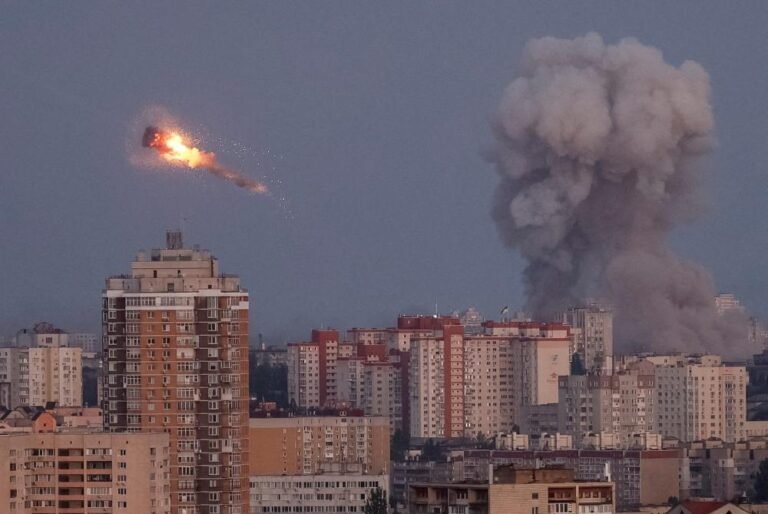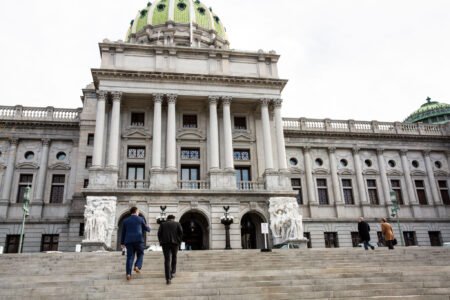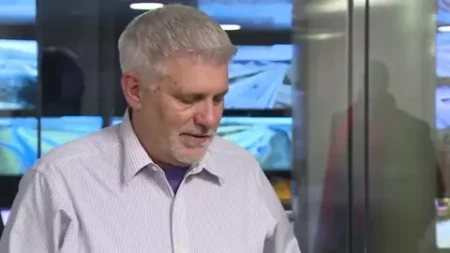President Donald Trump said on Sunday he is ready to move forward with additional sanctions on Russia. Asked by a reporter at the White House if he was prepared to begin “the second phase” of sanctions, Trump replied simply, “Yeah, I am.” He did not provide details about what a second phase would include or confirm any immediate steps.
Trump also noted that several European leaders are scheduled to visit the United States on Monday and Tuesday. He said he would speak with Russian President Vladimir Putin soon, though no date or agenda for the meeting was shared.
US Treasury Secretary Scott Bessent suggested that the United States and the European Union could impose secondary tariffs on countries importing Russian oil. These measures aim to weaken the Russian economy and pressure Putin to negotiate. China remains a major buyer of Russian energy. Meanwhile, Trump has imposed a 50% tariff on Indian goods, citing its imports of Russian oil along with other unresolved disputes, including India’s decision not to nominate him for a Nobel Peace Prize.
Ukraine’s President Volodymyr Zelenskyy criticized Putin’s approach to meetings with international leaders. He said that while Putin showed interest in meeting Trump in Alaska, he avoided a direct discussion with Zelenskyy. Zelenskyy noted that he could not travel to Moscow while Ukraine faces ongoing missile attacks. He emphasized his readiness for any kind of bilateral or trilateral meeting but insisted it must not occur on Russian soil.
Zelenskyy also called for a robust response from the United States following the largest Russian barrage on Ukraine to date. The attacks caused civilian casualties, including a mother and her baby. For the first time, a major government building in Kyiv was hit. Zelenskyy stressed the need for a coordinated international reaction, specifically citing strong US support.
In other regions, Russian mortar attacks injured a teenage girl in Kupyansk, Kharkiv, while a drone strike wounded a woman in Sumy city. Ukrainian officials continue to report civilian casualties as Russia targets populated areas.
Ukraine’s military launched an overnight attack on the Druzhba oil pipeline in Russia’s Bryansk region. Officials reported significant fire damage. The pipeline supplies oil to several European nations, including Hungary and Slovakia, whose leaders are seen as close to Putin. This strike is part of Ukraine’s broader strategy to disrupt Russian energy infrastructure, which supports its military operations.
The Ukrainian defense ministry confirmed that Kyiv is coordinating with international allies for additional support. Planned discussions include improvements to air defenses and the supply of equipment to strengthen Ukraine’s capability for deeper strikes into Russian territory.
Trump’s stance on further sanctions comes as tensions continue to rise over energy and military conflicts. Analysts note that secondary tariffs on oil-importing countries could significantly affect global energy markets while increasing pressure on Russia. The measures reflect a strategy to weaken the Russian economy while demonstrating US commitment to allies.
Experts also highlight that sanctions alone may not end the conflict but could force Russia to engage in negotiations. Meanwhile, Ukraine’s military operations against energy targets signal a shift to directly challenging the economic foundations that fund the war.
As US and European leaders prepare to meet with Trump in Washington, discussions are expected to focus on coordinated sanctions and support for Ukraine. These meetings may shape the next steps in international efforts to contain Russia’s aggression and mitigate further civilian harm in Ukraine.
With both sanctions and military strategies intensifying, the conflict shows no signs of easing. Ukraine continues to rely on foreign support, while Trump signals a willingness to escalate economic pressure on Russia through a potential second phase of sanctions.







